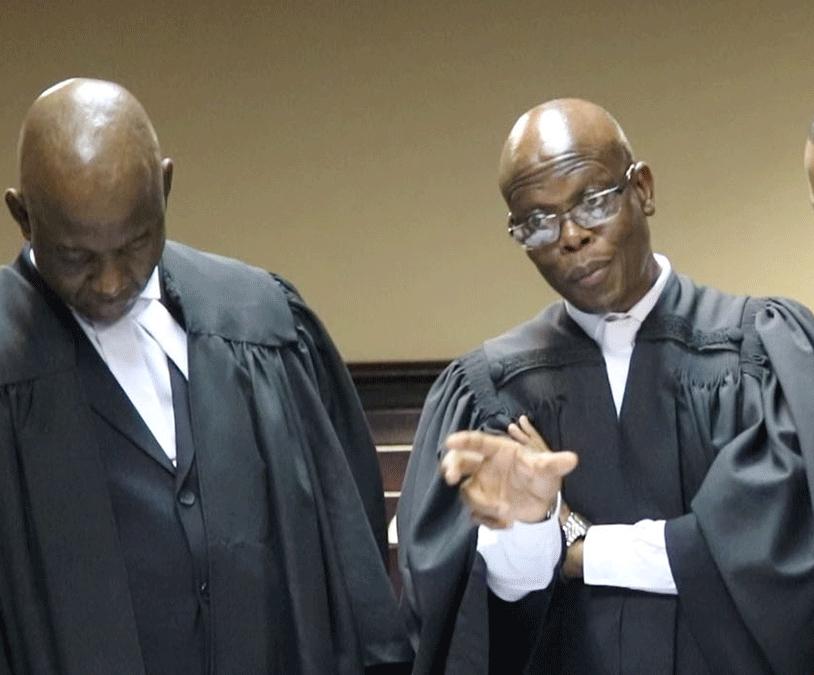Tshekiso Tshekiso, a towering figure in Botswana’s legal community, has been appointed as a judge of the High Court. This elevation comes after years of unwavering advocacy for judicial reform and a steadfast commitment to upholding the rule of law, positions that have cemented his reputation as a leading voice for justice in the nation.
Tshekiso’s distinguished career trajectory, marked by both public service and a thriving private practice, has consistently reflected his deep dedication to enhancing the integrity, efficiency, and accessibility of Botswana’s justice system. His appointment to the High Court bench is expected to amplify his impactful contributions, offering a unique blend of experience from both sides of the legal spectrum.
A Career Defined by Advocacy and Action
Before his elevation, Tshekiso’s prominence was particularly underscored by his pivotal tenure as the Chairperson of the Law Society of Botswana (LSB). In this role, he stood at the helm of the primary professional body regulating the legal profession, promoting legal education, and advocating for justice across Botswana. Complementing this, his appointment as a member of the Judicial Service Commission (JSC) in 2021 provided him with a strategic platform to directly influence legal policy and practice from within the very structures he often critiqued.
His time as LSB Chairperson saw him become a consistently vocal proponent of reforms addressing systemic issues within the judicial system. He tirelessly advocated for enhanced fairness, transparency, and efficiency. Key areas of his focus included:
Addressing Prolonged Incarceration and Trial Delays: Tshekiso repeatedly highlighted the plight of accused persons, particularly undocumented foreign nationals, enduring lengthy detentions without trial. He urged judicial officers to ensure swift investigations and timely trials.
Tackling Court Process Backlogs: He consistently pointed out “excessive delays in the transcription and transmission of records,” which often rendered appeals moot by the time they were heard.
Championing Transparency in Judicial Appointments: A central theme of his advocacy was the urgent call for public advertisement of judicial vacancies, arguing that the previous opaque arrangements could “compromise the quality of justice.”
Scrutinising Magistrate Appointments: He openly questioned the practice of directly appointing recent graduates as magistrates, contending they often lacked “sufficient experience to be given such immense responsibility and power.”
Battling Judgment Delays: Tshekiso lamented the persistent delays in delivering judgments, noting it often forced litigants to abandon court processes or resort to costly arbitration, thereby making justice less accessible.
Defending Judicial Independence: He was a prominent critic of the Chief Justice’s discretion in assigning judges to specific cases, expressing concern that such practices “cast an element of doubt on fairness and transparency” and contributed to “judge shopping.”
His courageous stance against such practices, coupled with his willingness to challenge authority, showcased a deep commitment to the independence and impartiality of the courts. Furthermore, under his leadership, the LSB voiced strong concerns about the Directorate of Intelligence and Security Services (DISS) operating “above the law” and actively oversaw disciplinary investigations against legal practitioners, irrespective of their status.
From Advocate to Adjudicator: The Impact of a New Judge
Tshekiso’s appointment to the High Court bench is expected to bring a wealth of practical experience and a reform-minded perspective to the judiciary. His intimate understanding of the challenges faced by litigants and legal practitioners, gained from years in private practice and through his leadership at the LSB, positions him to make a significant positive impact.
As a High Court judge, Tshekiso will be able to directly address many of the systemic issues he previously highlighted. His experience in appellate litigation and his reputation for aggressive yet effective cross-examination techniques suggest that he possesses the robust legal acumen necessary for the demands of the bench.
“Having championed transparency in judicial appointments and efficiency in court processes, his presence on the High Court will likely see him implement the very principles he advocated for,” noted a seasoned legal observer who requested anonymity. “His critiques of ‘judge shopping’ and delays in judgment delivery indicate a judge who will prioritise impartiality and timely justice.”
His consistent call for merit-based appointments and his understanding of the need for experienced judicial officers will likely influence his approach to cases and his overall judicial philosophy. Furthermore, his strong stance on accountability, particularly concerning state agencies like the DISS, suggests a judge who will meticulously ensure that all parties operate within the confines of the law.
His unique position, having served as both LSB Chairperson and a member of the JSC, provides him with an unparalleled vantage point. He understands both the external advocacy needs of the legal profession and the internal policy considerations of judicial administration. This synergy is expected to enable him to contribute to reforms from within, translating external calls for change into concrete internal policy and practice.
Ultimately, Judge Tshekiso Tshekiso’s elevation to the High Court is more than just a personal achievement; it signifies a strategic reinforcement of Botswana’s judiciary with a highly respected, experienced, and principled legal mind. His track record suggests he will be a forceful proponent of fairness, transparency, and efficiency, contributing significantly to a more robust and accessible justice system for all Batswana.



